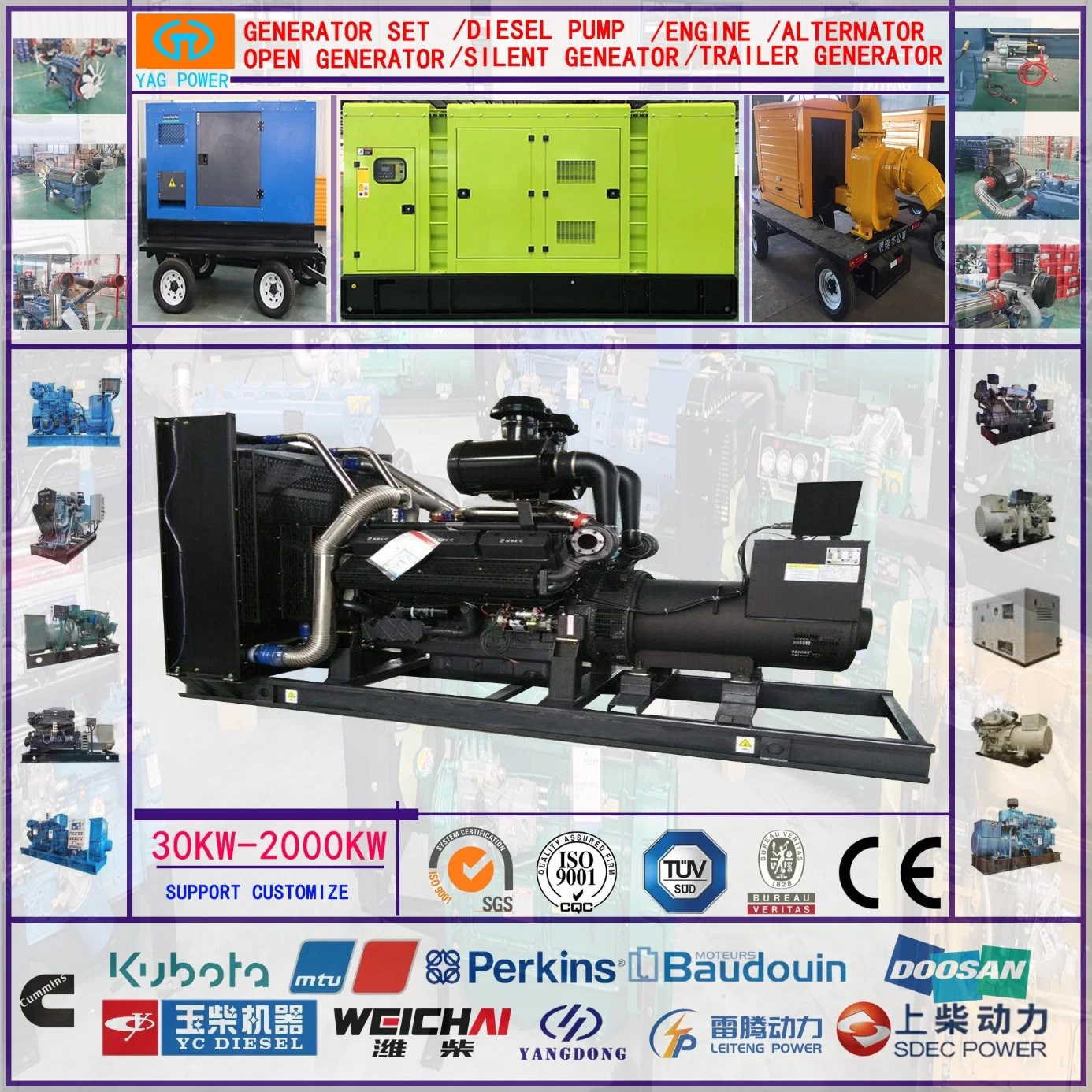Introduction:
In today's dynamic world, the demand for reliable and efficient power generation solutions has never been higher. Diesel generators have long been a popular choice for providing backup power in situations where grid electricity is unavailable or unreliable. One of the key advantages of diesel generators is their ability to handle variable load demands efficiently. In this article, we will explore the workings of diesel generators, their applications for variable load demands, and the factors to consider when selecting a diesel generator for such requirements.
Understanding Diesel Generators:
A diesel generator is a type of internal combustion engine that converts diesel fuel into electrical energy. The basic components of a diesel generator include an engine, an alternator, a fuel system, a cooling system, and a control panel. The engine drives the alternator, which generates electricity through electromagnetic induction. The fuel system supplies diesel fuel to the engine, while the cooling system prevents overheating by dissipating excess heat.
Diesel generators are known for their reliability, durability, and high power output. They are widely used in various applications, including residential, commercial, industrial, and military settings. Diesel generators are particularly well-suited for situations where a continuous and stable power supply is essential, such as hospitals, data centers, telecommunications facilities, and critical infrastructure.
Variable Load Demands and Diesel Generators:
Variable load demands refer to situations where the power requirements fluctuate over time. This can occur due to factors such as changes in equipment operation, varying weather conditions, or shifting energy consumption patterns. Diesel generators are well-equipped to handle variable load demands due to their inherent characteristics, such as quick start-up times, robust construction, and ease of scalability.
In scenarios where the power demand fluctuates, diesel generators can adjust their output accordingly to meet the changing load requirements. This flexibility makes diesel generators an excellent choice for applications with unpredictable or varying power needs. Whether it's a sudden surge in electricity usage or a gradual increase in load, diesel generators can respond effectively to ensure continuous power supply.
Applications of Diesel Generators for Variable Load Demands:
Diesel generators find extensive use in a wide range of applications with variable load demands. Some common examples include:
1. Construction Sites: Construction projects often have fluctuating power requirements due to the use of heavy machinery, power tools, and temporary facilities. Diesel generators are commonly used to provide on-site power for construction activities, ensuring that the project stays on schedule without interruptions.
2. Events and Festivals: Outdoor events, concerts, festivals, and temporary gatherings require reliable power sources to support lighting, sound systems, vendors, and other electrical equipment. Diesel generators are a popular choice for such events due to their portability and ability to handle varying loads.
3. Telecom Towers: Mobile network operators rely on diesel generators to provide backup power for telecom towers in remote or off-grid locations. These towers experience fluctuating power demands based on network traffic, weather conditions, and equipment maintenance schedules.
4. Agriculture: Farms and agricultural operations often have variable power requirements, depending on the season, irrigation needs, and equipment usage. Diesel generators can serve as reliable power sources for running water pumps, machinery, and other farm equipment.
Factors to Consider When Selecting a Diesel Generator for Variable Load Demands:
When choosing a diesel generator for applications with variable load demands, several factors should be taken into account to ensure optimal performance and efficiency. These factors include:
1. Power Output Range: The diesel generator should have a power output range that can accommodate the maximum and minimum load requirements of the application. It's essential to select a generator with adequate capacity to handle peak loads without overloading the system.
2. Load Response Time: The generator's ability to respond quickly to load changes is crucial for maintaining a stable power supply. Look for generators with fast load response times and smooth transition between different load levels.

3. Fuel Efficiency: Diesel generators should be fuel-efficient to minimize operating costs, especially in applications with variable load demands. Consider generators with advanced fuel injection systems, variable speed engines, and energy-saving features to optimize fuel consumption.
4. 500kw diesel generator for disaster relief : Regular maintenance is essential to keep diesel generators operating smoothly and efficiently. Choose a generator with accessible service points, user-friendly controls, and reliable components to simplify maintenance tasks.
5. Environmental Considerations: Diesel generators emit exhaust gases and noise during operation, which can have environmental implications. Select generators that comply with emission regulations, noise standards, and environmental guidelines to minimize their impact on the surroundings.
Conclusion:
Diesel generators are versatile power generation solutions that excel at handling variable load demands in diverse applications. Their robust construction, high reliability, and scalability make them ideal for situations where power requirements fluctuate unpredictably. By understanding the workings of diesel generators, exploring their applications for variable load demands, and considering key factors when selecting a generator, users can ensure a dependable and efficient power supply in any scenario. Whether it's powering a construction site, supporting an outdoor event, or providing backup power for telecom infrastructure, diesel generators continue to play a vital role in meeting variable load demands across various industries.
